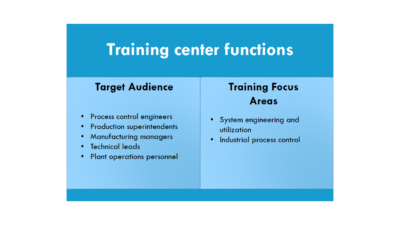Colorado State University (CSU) has received a five-year, $2 million, grant from the National Science Foundation (NSF) and will use the money to adopt a more holistic approach in the Department of Electrical and Computer Engineering by teaching students how various components fit together in real-world applications.

Colorado State University (CSU) has received a five-year, $2 million, grant from the National Science Foundation (NSF) designed to retool the way engineering and computer science are taught. CSU plans to break down the traditional approach of teaching one subject per course and replace it with a system where students in electrical and computer engineering simultaneously learn how various components fit together in real-world applications.
"There are multiple power amplifier modules, antenna switches, and filters integrated in an iPhone, it’s a complex system," said CSU School of Education Professor Michael De Miranda, one of the project co-investigators. "Understanding it requires a combination of math, physics, and electrical engineering."
Instead of teaching those subjects and others separately, without explaining how they relate to each other and everyday technologies, the CSU team will adopt a more holistic approach in the Department of Electrical and Computer Engineering.
"The current engineering educational system fails in two fundamentally critical ways," the CSU researchers say in their abstract. "First, students who have the desire and aptitude to become accomplished and productive engineers are abandoning the discipline in startling numbers. Second, students who graduate are frequently not prepared for the realities of their chosen profession and are switching careers at alarming rates."
De Miranda, who has a joint appointment in the Department of Electrical and Computer Engineering, explained that the new educational approach will include the use of "learning studio modules," where students learn in teams, doing hands-on work, and "knowledge integration modules," in which multiple fields will be taught at the same time.
"Students have been taking some courses in isolation; they don’t know why they’re there and the relevance of what they learn," said Tom Chen, a co-investigator and professor of Electrical and Computer Engineering. "We need to do a better job of connecting the dots for them with applications students are familiar with, such as cell phones."
The project, "Revolutionizing Roles to Reimagine Integrated Systems of Engineering Formation," will also involve revamping the way that faculty in the department are evaluated and rewarded. Professor Tony Maciejewski, head of the department and principal investigator on the project, said it’s rare for the NSF to spearhead such a sweeping transformation, beyond just a course or a curriculum, to "change the culture of an entire engineering department."
He described the traditional course structure as "stovepipes."
"A student goes to the math department for calculus, then to the physics department, then here for their circuits class," Maciejewski said. "Nobody makes the connections between those three things. And chances are those three faculty will not talk to each other and don’t know what the others are teaching. There is not enough coordination."
Program structure
Three threads, each headed by a faculty member, will run through the new curriculum: Foundations, Creativity and Professionalism. In the new format, the basic math and science coursework won’t be front-loaded at the beginning of the curriculum, but woven throughout the program when it is needed so that students always know why they are learning something. Maciejewski said one hope is to hook students’ interest earlier and to improve retention. Instead of saving most of the research and innovation until students’ senior design project, applications to the real world will be incorporated into all four years.
"Waiting until the senior year for that is way too late; you’ve already lost two-thirds of your students," he said.
The new curriculum will also focus more on "soft skills" that engineers need beyond technical expertise, in areas such as communication, ethics, social impact, and interaction in large, diverse groups.
The NSF initiative
The NSF awarded a total of $12 million in the 2015 round of its Revolutionizing Engineering Departments (RED) initiative.
"An underlying premise of RED is that department heads can be critical levers for change," said Donna Riley, NSF program director for engineering education research. "RED focuses on transforming department structure and faculty reward systems to stimulate comprehensive change in policies, practices and curricula."
The funding came from NSF’s Directorates for Engineering, Computer and Information Science and Engineering, and Education and Human Resources. The RED investment is part of the NSF’s undergraduate STEM (science, technology, engineering and math) education initiative, "Improving Undergraduate STEM Education."
"The engineering and computer science professions have a large potential to address national priorities and societal grand challenges," said Pramod Khargonekar, NSF assistant director for engineering. "To flourish in the future, engineering and computer science must attract and retain people from all sectors of society."
Colorado State University
National Science Foundation
– Edited by Chris Vavra, production editor, Control Engineering, [email protected]. See more system integration stories.



